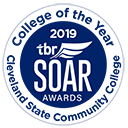ESL Specialist
Adult Basic and Secondary Education and Literacy Teachers and Instructors
25-3011.00
Median wages
$46,890
Teach or instruct out-of-school youths and adults in remedial education classes, preparatory classes for the General Educational Development test, literacy, or English as a Second Language. Teaching may or may not take place in a traditional educational institution.
- Adapt teaching methods and instructional materials to meet students' varying needs, abilities, and interests.

- Maintain accurate and complete student records as required by laws or administrative policies.

- Assign and grade class work and homework.

- Prepare and administer written, oral, and performance tests and issue grades in accordance with performance.

- Conduct classes, workshops, and demonstrations to teach principles, techniques, or methods in subjects, such as basic English language skills, life skills, and workforce entry skills.

- Observe and evaluate students' work to determine progress and make suggestions for improvement.

- Establish clear objectives for all lessons, units, and projects and communicate those objectives to students.

- Instruct students individually and in groups, using various teaching methods, such as lectures, discussions, and demonstrations.

- Guide and counsel students with adjustment or academic problems or special academic interests.

- Prepare materials and classrooms for class activities.

- Observe students to determine qualifications, limitations, abilities, interests, and other individual characteristics.

- Prepare objectives and outlines for courses of study, following curriculum guidelines or requirements of states and schools.

- Register, orient, and assess new students according to standards and procedures.

- Review instructional content, methods, and student evaluations to assess strengths and weaknesses, and to develop recommendations for course revision, development, or elimination.

- Establish and enforce rules for behavior and procedures for maintaining order among the students for whom they are responsible.

- Prepare students for further education by encouraging them to explore learning opportunities and to persevere with challenging tasks.

- Enforce administration policies and rules governing students.

- Use computers, audio-visual aids, and other equipment and materials to supplement presentations.

- Prepare and implement remedial programs for students requiring extra help.

- Plan and conduct activities for a balanced program of instruction, demonstration, and work time that provides students with opportunities to observe, question, and investigate.

- Meet with other professionals to discuss individual students' needs and progress.

- Prepare for assigned classes and show written evidence of preparation upon request of immediate supervisors.

- Select, order, and issue books, materials, and supplies for courses or projects.

- Prepare reports on students and activities as required by administration.

- Confer with other staff members to plan and schedule lessons that promote learning, following approved curricula.

- Attend professional meetings, conferences, and workshops to maintain and improve professional competence.

- Collaborate with other teachers and professionals in the development of instructional programs.

- Plan and supervise class projects, field trips, visits by guest speakers, contests, or other experiential activities, and guide students in learning from those activities.

- Attend staff meetings and serve on committees, as required.

- Participate in publicity planning, community awareness efforts, and student recruitment.

- Provide information, guidance, and preparation for the General Equivalency Diploma (GED) examination.

- Provide disabled students with assistive devices, supportive technology, and assistance accessing facilities, such as restrooms.

- Write grants to obtain program funding.

- Select and schedule class times to ensure maximum attendance.

- Confer with leaders of government and community groups to coordinate student training or to find opportunities for students to fulfill curriculum requirements.

- Observe and evaluate the performance of other instructors.

- Train and assist tutors and community literacy volunteers.

- Advise students on internships, prospective employers, and job placement services.
- Computer based training software — Computerized testing software; Educational software

- Data base user interface and query software — Data entry software


- Desktop publishing software — Microsoft Publisher


- Electronic mail software — Microsoft Outlook


- Enterprise resource planning ERP software
 — SAP
— SAP 

- Graphics or photo imaging software — Adobe Systems Adobe Photoshop


- Internet browser software — Web browser software

- Office suite software — Microsoft Office

- Presentation software — Microsoft PowerPoint


- Spreadsheet software — Microsoft Excel


- Word processing software — Microsoft Word

![]() Hot Technology — a technology requirement frequently included in employer job postings.
Hot Technology — a technology requirement frequently included in employer job postings.
- Instructing — Teaching others how to do something.

- Speaking — Talking to others to convey information effectively.

- Active Listening — Giving full attention to what other people are saying, taking time to understand the points being made, asking questions as appropriate, and not interrupting at inappropriate times.

- Reading Comprehension — Understanding written sentences and paragraphs in work related documents.

- Writing — Communicating effectively in writing as appropriate for the needs of the audience.

- Learning Strategies — Selecting and using training/instructional methods and procedures appropriate for the situation when learning or teaching new things.

- Monitoring — Monitoring/Assessing performance of yourself, other individuals, or organizations to make improvements or take corrective action.

- Active Learning — Understanding the implications of new information for both current and future problem-solving and decision-making.

- Critical Thinking — Using logic and reasoning to identify the strengths and weaknesses of alternative solutions, conclusions or approaches to problems.

- Judgment and Decision Making — Considering the relative costs and benefits of potential actions to choose the most appropriate one.

- Service Orientation — Actively looking for ways to help people.

- Social Perceptiveness — Being aware of others' reactions and understanding why they react as they do.

- Complex Problem Solving — Identifying complex problems and reviewing related information to develop and evaluate options and implement solutions.

- Coordination — Adjusting actions in relation to others' actions.

- Time Management — Managing one's own time and the time of others.










